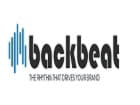The retail industry is an increasingly dangerous place in which to invest. Changing consumer shopping habits are decimating once-venerable businesses, and new titans are emerging to replace the old guard.
Yet in this dynamic arena, opportunities exist for intrepid investors -- if you know where to look. In this regard, let's evaluate Home Depot (NYSE:HD) and Target (NYSE:TGT) to see which is the stronger investment opportunity today.

IMAGE SOURCE: GETTY IMAGES.
Financial strength
As e-commerce continues to disrupt a large swath of the traditional retail industry, only the strongest retailers are likely to survive over the long term. Financial fortitude is therefore of the utmost importance. Let's take a look at how Home Depot and Target stack up in this regard.
Metric | Home Depot | Target |
|---|---|---|
| Revenue | $99.2 billion | $69.8 billion |
| EBITDA | $16.5 billion | $6.9 billion |
| Net income | $8.6 billion | $2.7 billion |
| Operating cash flow | $11.6 billion | $7.0 billion |
| Free cash flow | $9.8 billion | $4.6 billion |
| Cash | $3.5 billion | $2.7 billion |
| Debt | $25.6 billion | $12.6 billion |
Advantage: Home Depot
Growth
Wall Street expects Home Depot's earnings per share to rise by nearly 13% annually over the next half-decade, driven by the company's successful omnichannel strategy, margin expansion initiatives, and massive share repurchases. During that same time, Target's EPS is projected to fall by more than 4% annually, as the retailer spends heavily to remodel its stores and strengthen its digital operations. Thus, Home Depot clearly has the edge in terms of expected growth in the coming years.
Advantage: Home Depot
Valuation
No better-buy discussion should take place without a look at valuation. Let's check out some key value metrics for Home Depot and Target, including price-to-earnings, price-to-sales, and price-to-free cash flow ratios.
Metric | Home Depot | Target |
|---|---|---|
| Trailing P/E | 25.07 | 11.28 |
| Forward P/E | 20.71 | 13.14 |
| P/S | 2.11 | 0.44 |
| P/FCF | 20.99 | 6.58 |
DATA SOURCE: YAHOO! FINANCE, MORNINGSTAR.
On all four metrics, Target's shares are considerably less expensive than Home Depot's. That's to be expected as Target's stock has lost nearly 30% of its value over the past year as the retailer has struggled with rising costs and declining margins. During this same period, Home Depot's shares gained more than 30%, as the home-improvement titan delivered robust profit growth. Still, at current prices, Target's shares are more attractively priced.
Advantage: Target
The better buy is...
Although Target's stock appears to be the better bargain based on traditional valuation metrics, Home Depot's greater financial fortitude and stronger growth prospects make it the superior long-term investment.
10 stocks we like better than Home Depot
When investing geniuses David and Tom Gardner have a stock tip, it can pay to listen. After all, the newsletter they have run for over a decade, Motley Fool Stock Advisor, has tripled the market.*
David and Tom just revealed what they believe are the ten best stocks for investors to buy right now… and Home Depot wasn't one of them! That's right -- they think these 10 stocks are even better buys.










